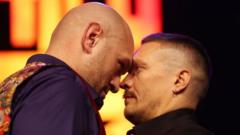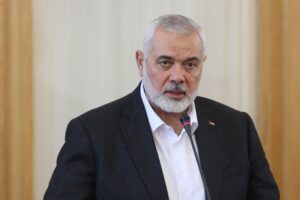Not good enough for Olympic gold in one sport? Just take up another…
Beth Potter competed at Rio 2016 in the 10,000m. On Wednesday she won gold in the triathlon.
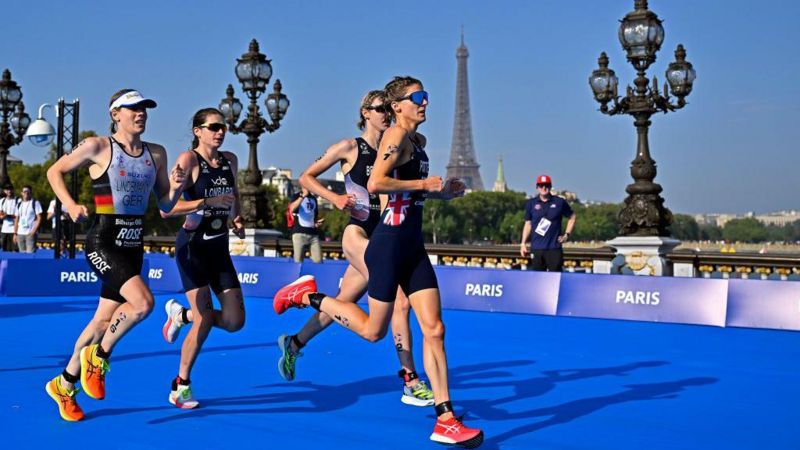
What did Beth Potter learn from her first Olympic Games experience? That she wasn’t good enough to win a medal on the athletics track.
So what did she do? Moved to a new city, took up another sport, got involved with some of the best in that game and resolved to claim a podium place in that instead.
The 31-year-old went into this summer’s Paris Olympics as world and European champion in the women’s triathlon and emerged with a bronze medal.
That is not only a mark of her determination, doggedness and competitiveness, but also quite the turnaround from Rio eight years ago.
In those Games, Potter dragged herself around 10,000m despite being struck with a stomach bug the night before.
The Glaswegian finished 34th, a result that left her “embarrassed” and feeling as if “she had made a show of herself”, according to younger sister Sarah.
“It was hard to watch,” she tells BBC Sport. “I was so proud because I knew she was in so much pain. To run the time she did, I was like ‘dear God, that is impressive’.
“I felt like her confidence got knocked after it, but had she not been in that race I don’t think she would have ever made the decision to try triathlon.”
-
-
24 September 2023
-
Potter has always relished a challenge.
She did a wide variety of sports as a kid, including obstacle races with her sister and cousins in her grandpa’s garden and football with the boys in the playground.
“She would come home and say ‘guess what, I was second-last pick today’,” says dad Alex. “But she worked and worked on her keepie uppies and got into the hundreds.
“You could get Beth to do virtually anything by telling her you’d time her doing it and compare it to the last time.”
“If you were going up and down stairs she would want to race you,” adds Sarah.
“Or you would be walking up the road and if she would see you even go a couple of steps ahead she would think ‘oh, there is a race on’ and start sprinting.”
So competitive was Potter that punishment for any bad behaviour would be missing whatever sports training she was due to go to.
At that time, it was primarily swimming.
After breaking a leg at the age of nine – and fretting about whether she would lose fitness during her recovery – Potter resumed her progress in the pool.
It was not until just before starting secondary school that running became part of her life.
“All the primary schools in Bearsden had a race around Kilmardinny Loch,” Alex recalls. “It was two laps and Beth won it by a country mile and broke a record that stood for about 15 years.
“Afterwards, Beth was choking on a fly she had swallowed and someone came up to me and asked ‘does she run?’ I said ‘no, she swims” and they said ‘you should get her into a running club because that is phenomenal’. And it kind of grew from there.”
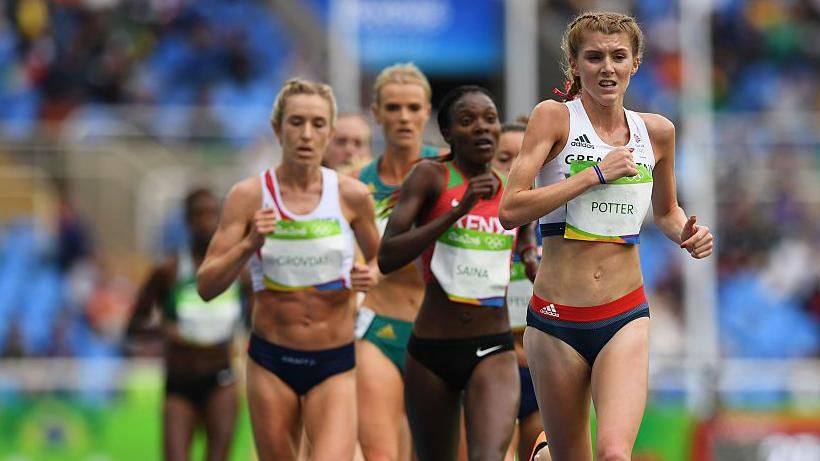
Potter soon broke future Olympic bronze medallist Yvonne Murray’s Scottish schools record over 1500m before moving up to the 10,000m.
A spell studying physics at Loughborough University furthered her education on and off the track before she moved to London to study teacher training.
It was there – at St Mary’s University – that she linked up with Michael Woods.
The acclaimed athletics coach remembers seeing Potter win a schools cross country event in Scotland in 2008, beating some of his English athletes.
“I was encouraging my athletes to try and catch her,” he recalls. “I said something like ‘go get her, she’s dead’.
“Beth told me years later that she heard me and it spurred her on.”
Under Woods’ tutelage, physics teacher Potter competed at the 2014 Commonwealth Games in her home city before going to that Olympics in Rio.
“She came away from it feeling very unhappy,” he says. “She said she would never win a medal at 5,000m or 10,000m because of African domination and that she was considering a move to triathlon.
“We watched the triathlon there and that was a bit of an inspiration because Beth had raced against Non Stanford in the past as an athlete, and seeing her finish fourth probably made Beth think she could do that as well.”
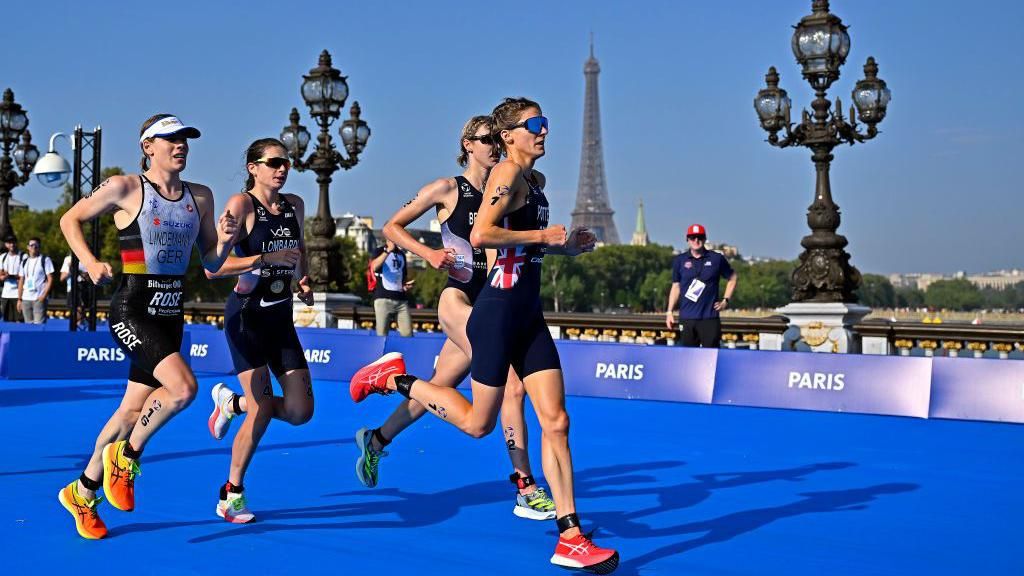
But where do you start when it comes to changing your sport at the elite level?
For Potter, it was a case of moving to Leeds to train with double Olympic gold medallist Alistair Brownlee and his brother Jonny, who himself has a medal of each colour from London, Rio and Tokyo.
The Scot stayed for a spell at Jonny’s house, trained more than she ever had before, while still teaching part-time in a secondary school.
“It is really amazing how far she has come,” Alistair tells BBC Sport.
“I was really impressed by her dedication. She was training for three sports for 20-30 hours a week, while still working, and was new to the sport and maybe making people feel a little bit threatened.
“But there is one thing you can definitely say about Beth, she is very determined.”
Nowhere was that more clear in her approach to mastering the cycling leg of triathlon.
While running and swimming came naturally, Potter was not familiar with road bikes.
“There is a lot of stuff on social media about Beth not having a bike as a child, which isn’t true,” says dad Alex. “She had cycled but she had never owned a road bike.
“But she is very driven, and woe betide if you suggest doing something that interferes with her training. Once she goes for something, she commits.”
“You can’t just be average on the bike – you have to be one of the better ones,” Brownlee adds. “So to get to where she has got is really impressive.”


